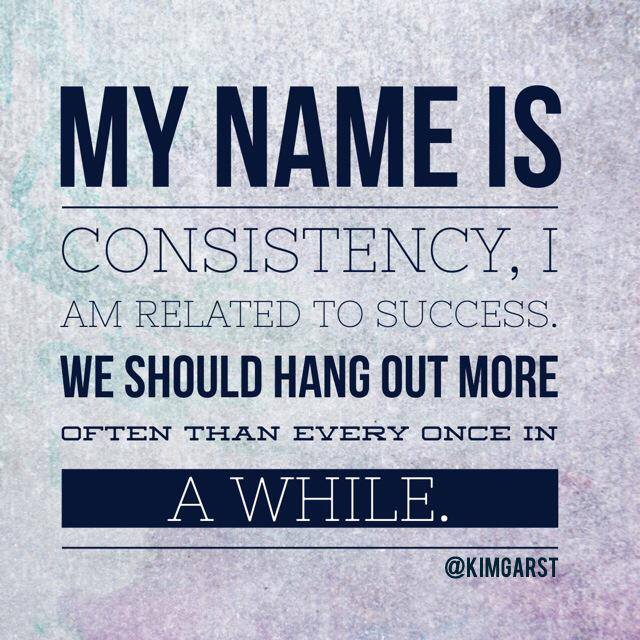7 Quick Tips On How To Communicate With Your Congregation
Market: Religious
Communication is the key to every great marriage, and as a pastor, it is your job to facilitate that communication between the Bride of Christ (the church) and the Lord. However, after years of pouring over ancient texts and deciphering scripture, it can be hard to express your understanding to the faithful flock God has seen fit to bless you with. Many a pastor has lost church members to an ill-placed word or a word not spoken, so it is incumbent upon ministers to make sure they can effectively speak to their congregations. Here are seven of the best communication methods to keep in touch with your congregation!
How To Communicate With Your Congregation
- Follow the rule of seven

Photo Credit: Flickr
The number seven is more than just a lucky number. There is an old marketing adage called “The Rule of Seven,” which states that in order for customers to remember a marketing campaign they must hear it seven times. The same rules can be applied to ministry. When communicating with your congregation, use multiple delivery methods. Speak it from the pulpit, print it in the bulletin, send out a church-wide e-mail, etc. The more chances your flock has to hear your message, the more of a chance they have of absorbing it.
- Don’t Dilute The Message
Sometimes not doing something is as important as doing something. By all means, follow The Rule of Seven, but don’t overdo it by sending excessive messages. In marketing, they call it diluting the brand. Think of your messages like sugar and the delivery of your message is like coffee. The bitter coffee makes the sugar sweeter; but if you put too much coffee in your drink, then you can no longer taste the sugar. In that same way, when you send excessive messages or hit on the same sermon every week, people are less likely to take your message seriously. After all, if you receive 100 e-mails about one topic, would the 101st email finally be the one that gets their attention?
- Prioritize Your Message
A common mistake pastors make is failing to prioritize what it is they want to say. Many ministers fail in their message delivery because they aren’t quite sure what they want to say. When working on your weekly sermon, think about the top three things you think your church needs to hear. Rank those three in order of importance and build your sermon around that list. You will be surprised at how much more focused your sermons will become.
- Use Technology To Your Advantage
![]() This one may seem obvious, but you would be surprised how many pastors fail to utilize the technology that they use every day. Facebook, Twitter, Google+,
This one may seem obvious, but you would be surprised how many pastors fail to utilize the technology that they use every day. Facebook, Twitter, Google+,
Utilizing social media is an excellent way to keep your congregation in the loop while simultaneously keeping your finger on the pulse of your flock. It’s also a great place to view what issues are important to your congregation, and are affecting them now. You can also digitize the church bulletin and send it out to your congregation via Mail Chimp, it’s an excellent free newsletter service for 2,500 subscribers).
- Know Your Audience
While you may not see it like this, essentially a pastor is a salesman of sorts. You may be selling salvation at the price of love and devotion towards God, but all the same, you are a salesman; and part of any good sales pitch is a working of knowledge of who you’re selling to. Know your congregation in and out because otherwise, your words will fall flatter than a raccoon on the interstate. The more you know about your congregation, the more you can tailor your message to better communicate the meaning of each sermon.
 K.I.S.S. Your Sermon
K.I.S.S. Your Sermon
As a pastor, you have had years of theological training and volumes worth of religious knowledge crammed in the cranium of yours. While it may impress your college friends to rattle on about transcendental substantiation, the average churchgoers will be left scratching their head in confusion. That is why it is of the utmost importance to Keep It Stupidly Simple. The simpler you can make it, the more elegant the message becomes. Don’t forget that you’re trying to enlighten your congregation, not impress your professor. If you want to see your message cut clear across the congregation is to K.I.S.S. everything you do.
 Instill Trust Through Consistency
Instill Trust Through Consistency
Out of everything on this list; this one is the most important one. While God may be the Ultimate Authority, as a pastor your moral authority is just as important as your sermons. Your congregation listens to you every week, and whether or not they listen to you is contingent on how they see you. Trust is important. If you constantly keep going back to what you say or change your mind like you change socks, then regardless of your eloquence, whatever you say will fall on deaf ears. Be clear, concise, and consistent if you want to effectively communicate with your congregation. You can stumble on many bumps in the road and still be a great pastor; but if you fail in this one category, you will fail as a pastor.
A pastor’s job is never easy. You have multiple interests to juggle, a sermon to write every week, and somewhere along the way find some quiet time to spend with God. It can be difficult, confusing, and frustrating sometimes. In all the tizzy that comes with the job, it’s easy to forget the simple things like figuring out how to communicate with your congregation in a way that is most meaningful to them; but don’t let it happen.
A successful pastor is one that communicates well with his congregation. If you follow these seven tips that we have laid out here for you today, things won’t always be perfect, but you will find yourself better equipped to deal with the storm that is set before you.